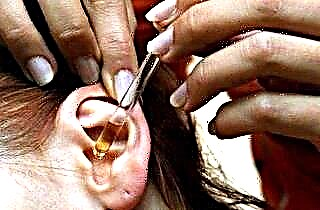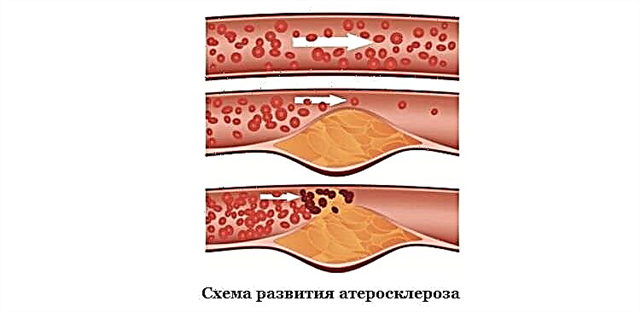Expectorants are a good remedy to help with an unproductive cough and to help pass mucus. But few people know that if you choose the wrong cough medicine, you can only aggravate the situation and even provoke complications. And the expectorants themselves for coughs act in different ways, so it is up to the doctor to decide which one is suitable in each particular case.
Types of cough
 Which cough remedies are best for adults depends primarily on the type of cough. But the cause that caused it must also be taken into account. After all, a cough is not a disease, but only a symptom and it is impossible to get rid of it without eliminating the causes of the underlying disease. Even if you use potent antitussive drugs (which is not always permissible!), The cough can return and even intensify almost immediately after they are canceled.
Which cough remedies are best for adults depends primarily on the type of cough. But the cause that caused it must also be taken into account. After all, a cough is not a disease, but only a symptom and it is impossible to get rid of it without eliminating the causes of the underlying disease. Even if you use potent antitussive drugs (which is not always permissible!), The cough can return and even intensify almost immediately after they are canceled.
Doctors divide coughs into two main groups: productive and unproductive. An unproductive cough is a dry cough in which sputum is not coughing up at all or its amount is minimal. This is the most painful type of cough, which is often paroxysmal, provokes severe irritation of the larynx, overstrain of the vocal cords, and can lead to partial or complete loss of voice.
An unproductive cough is typical for the initial stage of colds, acute respiratory infections, acute respiratory viral infections and other respiratory diseases. Properly selected expectorant drugs can help transform dry coughs into wet or wet coughs and thus speed up recovery.
Wrongly chosen coughing agents, in a situation where there is still nothing to cough up, will only increase the inflammation in the throat.
A productive cough is a wet or wet cough, during which mucus may not be coughing up if it is thick and viscous. In this case, you just need a strong expectorant, thinning phlegm. Otherwise, it will stagnate in the bronchi and lungs, making breathing difficult and reducing their vital functions. But even in this case, not every medicine is suitable. Moreover, a wet cough has several varieties, each of which has its own characteristics.
Features of wet cough
A wet cough is the main symptom of many different diseases, and not only respiratory ones. Its characteristic features and the choice of the most effective expectorant cough medicine directly depend on the cause and nature of the disease. Let's consider some of them:
 Acute and chronic respiratory diseases. The most common cause of a wet cough, which usually appears 3-4 days after the infection enters the respiratory tract. An expectorant for coughing can help clear up phlegm faster and make breathing easier. It is used as part of complex therapy in combination with other medicines or alternative methods of treatment.
Acute and chronic respiratory diseases. The most common cause of a wet cough, which usually appears 3-4 days after the infection enters the respiratory tract. An expectorant for coughing can help clear up phlegm faster and make breathing easier. It is used as part of complex therapy in combination with other medicines or alternative methods of treatment.- Bronchial asthma. Gives a strong, moist cough, the attacks of which most often occur in the morning. They are triggered by a large amount of thick mucus that has accumulated overnight. The coughing attack continues until the mucous plug is completely released. The maximum effect is given by a cough syrup, which simultaneously expands the bronchi and makes breathing easier.
- Allergic cough. A severe allergic reaction is always accompanied by an abundant secretion of thin mucus. A cough is provoked by swelling of the mucous membranes, due to which there is a lack of air, with which the body fights, expanding the lumen of the larynx with the help of coughing. Antitussive and expectorant cough medicines or phlegm-thinning drugs are equally useless here. The best thing in this situation is to take an antihistamine.
- Tuberculosis and other lung diseases. In no case should they be treated with expectorants on their own. With open tuberculosis, this can provoke pulmonary bleeding. A wet, excruciating cough can also be present when fluid accumulates in the lungs. It is impossible to use an expectorant drug in such a situation. But in case of pneumonia, it can be useful and accelerate recovery.
 Contaminated air. For the lungs, it does not matter what reasons cause physical irritants to enter them: poor environmental conditions, work in hazardous industries or banal smoking. Particles of dust, soot, gases and other substances settle on the villi lining the mucous membranes of the nose and bronchi, and the body tries to flush them out by producing additional amounts of mucus and push them out using the cough reflex. In this case, it is necessary first of all to eliminate the negative influence of external factors, and then to treat the cough.
Contaminated air. For the lungs, it does not matter what reasons cause physical irritants to enter them: poor environmental conditions, work in hazardous industries or banal smoking. Particles of dust, soot, gases and other substances settle on the villi lining the mucous membranes of the nose and bronchi, and the body tries to flush them out by producing additional amounts of mucus and push them out using the cough reflex. In this case, it is necessary first of all to eliminate the negative influence of external factors, and then to treat the cough.- Endocrine and other chronic diseases of internal organs. They can also provoke increased secretion of mucus that accumulates in the throat or bronchi and causes a cough. Sputum-thinning agents here can only exacerbate the problem. Before trying to use any expectorants, it is necessary to determine the cause of the disease and act first of all directly on it.
Therefore, self-treatment of a wet cough can be dangerous - even the best expectorant can turn against you if used incorrectly.
Some of the drugs have quite numerous contraindications, which must also be taken into account when choosing a cough medicine.
Types of expectorant drugs
Expectorants differ in their effects on the body. Some of them are able to change the consistency of sputum, while others increase the activity of the cilia that line the mucous membranes of the bronchi. There are also combined drugs that combine both an expectorant effect and antitussive properties.
A competent specialist, having accurately established the cause of the cough based on the results of the examination and knowing its nature, selects expectorants, taking into account all the features of the course of the disease and existing contraindications. It's almost impossible to do it yourself. Therefore, situations arise when a person seems to have bought a good medicine, but it does not help him.
All drugs that help cough up phlegm can be divided into two main groups:
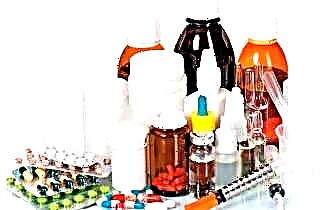 Expectorants of reflex action. Their task is to provoke a cough reflex. This can be done in two ways: by acting directly on the cough center of the brain or by irritating the gastric mucosa, due to which the amount of secretion secreted by the bronchi increases. The mucus becomes thinner and therefore easier to cough up.
Expectorants of reflex action. Their task is to provoke a cough reflex. This can be done in two ways: by acting directly on the cough center of the brain or by irritating the gastric mucosa, due to which the amount of secretion secreted by the bronchi increases. The mucus becomes thinner and therefore easier to cough up.- Direct-acting expectorants. These drugs also have different mechanisms of action. Some of them are only capable of thinning phlegm, thereby making it easier to pass. Others stimulate the smooth muscles of the bronchi, increasing the mobility of the cilia, which move mucus to the bronchi, due to which it is quickly excreted.
Not so long ago, combined expectorants appeared on the market, which also have antitussive properties. They thin phlegm, but at the same time slightly suppress the cough reflex. This combination of properties is very convenient when there is mucus, but it is still too thick and is located deep in the lungs, so it cannot cough up.
The medicine saves the vocal cords and larynx from overexertion and relieves of painful attacks of unproductive cough, gradually transferring dry to wet.
Such funds are often prescribed for acute bronchitis, tracheitis, complicated by ARVI. They are usually produced in the form of thick cough syrups, which envelop the mucous membrane of the throat, relieving inflammation and creating a protective film on it.
The best drugs
In the variety of modern pharmacy cough remedies, it is easy to get lost even for doctors. Dozens of new drugs appear on the market every year, although many of them turn out to be analogs of existing ones, at best modified, and at worst - with changed packaging and a decently increased price. Therefore, you should not chase new products. When buying, you need to look not at advertising, but at the composition and principle of action of the drug.
The following drugs have proven themselves best in the fight against wet cough:
- "Ambroxol" and its analogues are expectorant cough syrups with a strong mucolytic effect.
- "Anise oil" - has an excellent cough softening effect, anti-inflammatory and antibacterial properties.
- "ACC" or acelitcysteine is a potent expectorant drug that has several forms of release: instant tablets and sachets with different dosages.
- "Bromhexine" - produced in the form of syrup or tablets, has a pronounced mucolytic effect.
- "Gedelix" is a natural combined preparation that helps against all types of cough, additionally has an antispasmodic effect.
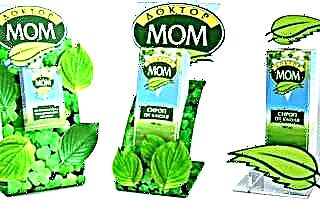 "Doctor MOM" is a herbal preparation consisting of extracts of several medicinal plants, syrup and expectorant cough tablets are produced.
"Doctor MOM" is a herbal preparation consisting of extracts of several medicinal plants, syrup and expectorant cough tablets are produced.- "Codelac" is a potent combined drug with an antitussive and expectorant effect, tablets (included in some syrups).
- Sinupret is an excellent expectorant of complex action with antiviral and anti-inflammatory effect.
- "Terpinkod" - another effective complex drug based on codeine, has a number of contraindications.
- "Tussin" and its analogues are a whole group of expectorant syrups with mucolytic effect.
- "Eucabal" - herbal cough syrup with anti-inflammatory effect, mucolytic.
Various balms and ointments based on essential oils of eucalyptus, fir, cedar, mint, menthol, camphor contribute to better sputum discharge. They are best used at night as a cough prophylaxis and as a breathing aid.
If you decide to buy an expectorant from the pharmacy yourself, do not rely on advertising. Describing the signs of cough and symptoms of the disease to the pharmacist and ask for advice - this will significantly reduce the risk of misuse of drugs.
Folk remedies
Time-tested folk remedies are a good alternative to pharmaceutical preparations. Their effect is weaker, but they have fewer side effects and there are practically no contraindications to them. Many of them can be used even during pregnancy and lactation, when most drugs are prohibited.
But traditional medicine, if used incorrectly, can do harm. Therefore, even if you are a supporter of natural methods of treatment, it is still worthwhile to see a doctor to establish a diagnosis and find out the cause of the cough. Most likely, he will tell you which of the folk remedies will be the most effective for coughing in your case. And we can give only a few of the simplest, but very effective recipes:
 Liquorice root. It is a real medicine with anti-inflammatory, tonic and cleansing effect. For thousands of years it has been used to treat various (not only respiratory!) Diseases. Excellent sputum thinner, relieves pain and sore throat. The recipe is simple: boil a tablespoon of chopped root, filled with a glass of boiling water over low heat for 15 minutes, keeping the volume of water (add a little), pour into a thermos and leave for another 2 hours. Add filtered to 2 tbsp. half a glass of warm water and take 4-5 times a day. Contraindications: pregnancy, lactation, renal and / or liver failure, high blood pressure. Released by the well-known studio Novomatic, the Book of Ra slot machine won over casino visitors with a real withdrawal of money to a bank card from all over the world. Now it is the most popular slot, which has large multipliers and special symbols that increase the winnings. Everything, taking into account the super-game, can be obtained up to x1,000,000 of the bet amount.
Liquorice root. It is a real medicine with anti-inflammatory, tonic and cleansing effect. For thousands of years it has been used to treat various (not only respiratory!) Diseases. Excellent sputum thinner, relieves pain and sore throat. The recipe is simple: boil a tablespoon of chopped root, filled with a glass of boiling water over low heat for 15 minutes, keeping the volume of water (add a little), pour into a thermos and leave for another 2 hours. Add filtered to 2 tbsp. half a glass of warm water and take 4-5 times a day. Contraindications: pregnancy, lactation, renal and / or liver failure, high blood pressure. Released by the well-known studio Novomatic, the Book of Ra slot machine won over casino visitors with a real withdrawal of money to a bank card from all over the world. Now it is the most popular slot, which has large multipliers and special symbols that increase the winnings. Everything, taking into account the super-game, can be obtained up to x1,000,000 of the bet amount.- Coltsfoot. This herb is able to cope even with purulent sputum, as it has an antibacterial and antiseptic effect. It is a phlegm-thinning agent that relieves inflammation and lowers body temperature. Can be used for making tea, gargling, inhalation. The infusion is prepared in the same way as a decoction of licorice root, with the difference that it is enough to infuse it for about an hour. It is categorically contraindicated in the first trimester of pregnancy - it can provoke a miscarriage, as well as with cirrhosis and other serious liver diseases.
- Elecampane. The very name of this plant, derived from "nine forces", indicates how strong its medicinal properties are. It is most effective when there is a large amount of sputum, as it significantly accelerates its excretion. It helps well with bronchitis, tracheitis, pneumonia. Promotes the rapid recovery of damaged mucous membranes, activates the immune defense. The recipe and method of use are the same. Contraindicated in pregnancy, breastfeeding, cardiac, renal, liver failure.
- Marshmallow officinalis. On the basis of the extract of this plant, a cough medicine "Alteika", familiar to everyone from childhood, with an excellent mucolytic effect, is industrially prepared. It is able to quickly convert a dry barking cough into a wet one, has an anti-inflammatory effect, relieves a sore throat and heals mucous membranes. The decoction recipe is the same as above. But one must be careful with this plant: individual intolerance is often found, it can provoke diarrhea and vomiting, it is categorically contraindicated in the early stages of pregnancy.
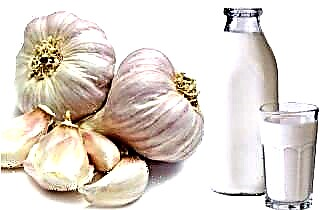 Onion syrup. The product is not very pleasant to the taste, but it is completely harmless if you are not allergic to honey. Grate two large white onions on a fine grater and squeeze the juice through cheesecloth. Mix it with the same amount of honey and take a teaspoon several times a day. At first, the remedy will cause a strong burning sensation, but after 3-4 doses, the condition of the throat will noticeably improve.
Onion syrup. The product is not very pleasant to the taste, but it is completely harmless if you are not allergic to honey. Grate two large white onions on a fine grater and squeeze the juice through cheesecloth. Mix it with the same amount of honey and take a teaspoon several times a day. At first, the remedy will cause a strong burning sensation, but after 3-4 doses, the condition of the throat will noticeably improve.- Garlic milk. Garlic is a true natural medicine. It has antibacterial, anti-inflammatory, wound healing and restorative properties. Milk perfectly softens coughs, warms up the throat and creates a protective film on it. Together, these products create an excellent expectorant that's easy to prepare in 5 minutes. It is necessary to peel and grind 3 large garlic cloves, pour them with a glass of milk and bring the mixture to a boil over low heat. Strain, divide into three doses and drink warm.
Other effective, all-natural expectorants can be found online if desired. But it is important to remember that a cough is just a symptom, and you need to fight the underlying disease. Therefore, it is still not worth completely abandoning medical care.

 Acute and chronic respiratory diseases. The most common cause of a wet cough, which usually appears 3-4 days after the infection enters the respiratory tract. An expectorant for coughing can help clear up phlegm faster and make breathing easier. It is used as part of complex therapy in combination with other medicines or alternative methods of treatment.
Acute and chronic respiratory diseases. The most common cause of a wet cough, which usually appears 3-4 days after the infection enters the respiratory tract. An expectorant for coughing can help clear up phlegm faster and make breathing easier. It is used as part of complex therapy in combination with other medicines or alternative methods of treatment. Contaminated air. For the lungs, it does not matter what reasons cause physical irritants to enter them: poor environmental conditions, work in hazardous industries or banal smoking. Particles of dust, soot, gases and other substances settle on the villi lining the mucous membranes of the nose and bronchi, and the body tries to flush them out by producing additional amounts of mucus and push them out using the cough reflex. In this case, it is necessary first of all to eliminate the negative influence of external factors, and then to treat the cough.
Contaminated air. For the lungs, it does not matter what reasons cause physical irritants to enter them: poor environmental conditions, work in hazardous industries or banal smoking. Particles of dust, soot, gases and other substances settle on the villi lining the mucous membranes of the nose and bronchi, and the body tries to flush them out by producing additional amounts of mucus and push them out using the cough reflex. In this case, it is necessary first of all to eliminate the negative influence of external factors, and then to treat the cough. Expectorants of reflex action. Their task is to provoke a cough reflex. This can be done in two ways: by acting directly on the cough center of the brain or by irritating the gastric mucosa, due to which the amount of secretion secreted by the bronchi increases. The mucus becomes thinner and therefore easier to cough up.
Expectorants of reflex action. Their task is to provoke a cough reflex. This can be done in two ways: by acting directly on the cough center of the brain or by irritating the gastric mucosa, due to which the amount of secretion secreted by the bronchi increases. The mucus becomes thinner and therefore easier to cough up. "Doctor MOM" is a herbal preparation consisting of extracts of several medicinal plants, syrup and expectorant cough tablets are produced.
"Doctor MOM" is a herbal preparation consisting of extracts of several medicinal plants, syrup and expectorant cough tablets are produced. Liquorice root. It is a real medicine with anti-inflammatory, tonic and cleansing effect. For thousands of years it has been used to treat various (not only respiratory!) Diseases. Excellent sputum thinner, relieves pain and sore throat. The recipe is simple: boil a tablespoon of chopped root, filled with a glass of boiling water over low heat for 15 minutes, keeping the volume of water (add a little), pour into a thermos and leave for another 2 hours. Add filtered to 2 tbsp. half a glass of warm water and take 4-5 times a day. Contraindications: pregnancy, lactation, renal and / or liver failure, high blood pressure. Released by the well-known studio Novomatic, the Book of Ra slot machine won over casino visitors with a real withdrawal of money to a bank card from all over the world. Now it is the most popular slot, which has large multipliers and special symbols that increase the winnings. Everything, taking into account the super-game, can be obtained up to x1,000,000 of the bet amount.
Liquorice root. It is a real medicine with anti-inflammatory, tonic and cleansing effect. For thousands of years it has been used to treat various (not only respiratory!) Diseases. Excellent sputum thinner, relieves pain and sore throat. The recipe is simple: boil a tablespoon of chopped root, filled with a glass of boiling water over low heat for 15 minutes, keeping the volume of water (add a little), pour into a thermos and leave for another 2 hours. Add filtered to 2 tbsp. half a glass of warm water and take 4-5 times a day. Contraindications: pregnancy, lactation, renal and / or liver failure, high blood pressure. Released by the well-known studio Novomatic, the Book of Ra slot machine won over casino visitors with a real withdrawal of money to a bank card from all over the world. Now it is the most popular slot, which has large multipliers and special symbols that increase the winnings. Everything, taking into account the super-game, can be obtained up to x1,000,000 of the bet amount. Onion syrup. The product is not very pleasant to the taste, but it is completely harmless if you are not allergic to honey. Grate two large white onions on a fine grater and squeeze the juice through cheesecloth. Mix it with the same amount of honey and take a teaspoon several times a day. At first, the remedy will cause a strong burning sensation, but after 3-4 doses, the condition of the throat will noticeably improve.
Onion syrup. The product is not very pleasant to the taste, but it is completely harmless if you are not allergic to honey. Grate two large white onions on a fine grater and squeeze the juice through cheesecloth. Mix it with the same amount of honey and take a teaspoon several times a day. At first, the remedy will cause a strong burning sensation, but after 3-4 doses, the condition of the throat will noticeably improve.